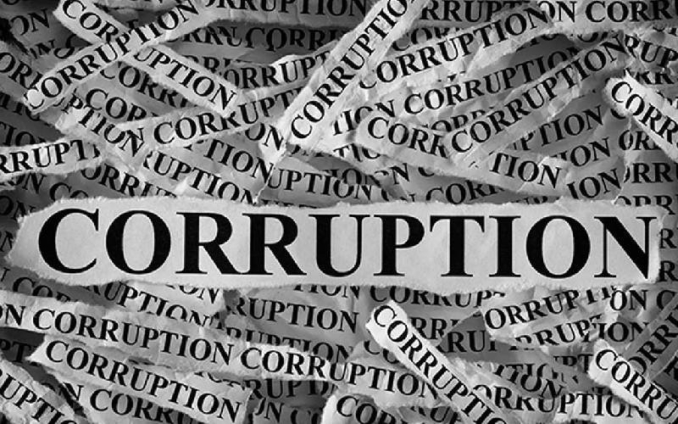Transparency International has released the latest Corruption Perceptions Index, which ranks Ghana as 70th out of 180 countries in terms of corruption.
The country scored 43 out of a possible 100, which is the same score since 2020.
In Sub-Saharan Africa, Ghana scored better than 39 other countries, including Burkina Faso (41), South Africa (41), Côte d'Ivoire (40), Tanzania (40), and Lesotho (39).
However, it ranked lower than seven countries in the region, including Mauritius (51), Namibia (49), and Sao Tome and Principe (45).
Transparency International's CPI reveals a mixed picture of anti-corruption efforts in Africa. While some countries have made notable progress, the majority still struggle with widespread corruption.
The average score for African countries remains low, at just 33 out of 100, with 90% of Sub-Saharan African nations scoring below 50.
Under the theme of "Corruption and Justice," the Corruption Perceptions Index (CPI) for 2023 shows that Ghana's stagnant score reflects a global trend of failed justice systems, which in turn allows corruption to flourish.
The connection between the country's CPI score and its performance in the Rule of Law Index, published by the World Justice Project, is particularly striking.
In 2015, Ghana scored 0.60 on the Rule of Law Index, ranking 34th out of 113 countries. By 2023, however, the country's score had dropped to 0.55, and its ranking had fallen to 61st out of 139 countries.
The Board Chairman of TI, François Valérian, stated that, “Corruption will continue to thrive until justice systems can punish wrongdoing and keep governments in check. When justice is bought or politically interfered with, it is the people who suffer. Leaders should fully invest in and guarantee the independence of institutions that uphold the law and tackle corruption. It is time to end impunity for corruption.”
The Rule of Law Index demonstrates a global decline in the functioning of justice systems, with countries scoring low on the index also ranking poorly on the Corruption Perceptions Index (CPI).
This correlation underscores the close relationship between access to justice and levels of corruption, suggesting that improvements in the former could lead to improvements in the latter.
Therefore, addressing weaknesses in the justice system should be a key focus of anti-corruption efforts and GII has recommended the following:
- The Executive should urgently take steps to lay the Conduct of Public Officers’ Bill in Parliament ensuring that provisions on assets declaration require verification and come with severe sanctions for non-compliance while GII also calls on the Legislature to attach an equal level of urgency to its timely passage.
- The Executive and the Legislature must take steps to bridge the legal gaps necessary for the prosecution of selected corruption cases outside our current legal framework. These anti- corruption frameworks include unexplained wealth, influence peddling, and all aspects of the UNCAC, among others.
- Government must give the justice system the resources and transparency needed to effectively punish all corruption offenses and provide checks and balances on power. Where necessary, they must also introduce better procedures and laws to help justice institutions shield themselves from and target corrupt acts.
- Laws that criminalise defamation or give judges discretion to award crippling compensation in libel cases inhibit the media from investigating and reporting suspected criminality and should be reformed. Journalists must be able to comment fairly on legal proceedings and report suspected or actual corruption or bias.
- The Judicial Service should institute limited immunity for judges in matters related to judicial duties while excluding immunity in corruption or criminal cases. · Expand, strengthen and increase knowledge of the public on the Public Relations and Complaint Unit (PRCU) of the Judicial Services. This will ensure a confidential and rigorous whistleblower policy for reporting suspected breaches, ensuring the involvement of lawyers, court users, prosecutors, police, media, and civil society.
Latest Stories
-
UNICEF and REMAPSEN host World Health Day webinar
1 hour -
Kumasi ready to buzz with Luv FM Family Party in the Park
2 hours -
Catholic Bishop of Goaso Diocese solicits stakeholder collaboration to ensure peace
2 hours -
9 devastating student deaths that sent shockwaves across the country
2 hours -
Heal Komfo Anokye Project advances to second phase
2 hours -
No more direct refund for 1st-year university students under “No-Fee Stress” policy – Apaak
2 hours -
Kaakie was talented but didn’t have time for music – JMJ
2 hours -
Expert calls for urgent investment in neonatal health in West and Central Africa
3 hours -
Weija-Gbawe MP threatens legal action against ECG over persistent ‘dumsor’ in his constituency
3 hours -
Kwahu Business Forum will empower MSMEs, enhance economic growth, says ADB MD
3 hours -
Weija-Gbawe residents demand urgent action from ECG over persistent power outages
3 hours -
Searching for mobile phone signal – How Sanguli residents struggle with poor network
4 hours -
British High Commission supports Nigerian Rugby with international standard rugby Kits
4 hours -
Revenue Assurance and Compliance Enforcement: The Role of SML in Ghana’s Petroleum Sector
6 hours -
Division One League: Hohoe United petitions GFA over referee Emmanuel Asare
7 hours

